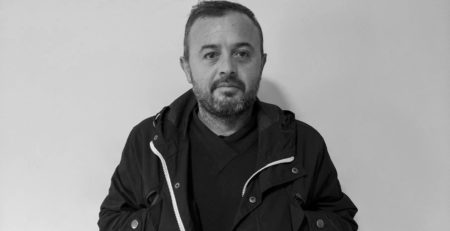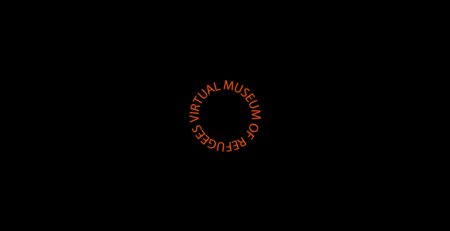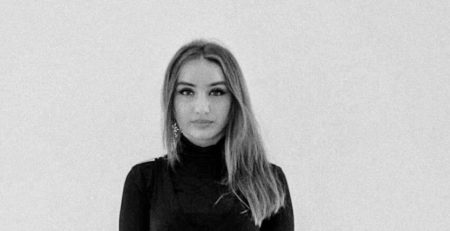Anonymous
Anonymous 1: I decided right at that moment.
The interviewer: Who were you with?
Anonymous 1: I was with my daughter-in-law, my nephew, and my niece. My son was in Austria during that time, he had an Arts exhibition before the war started. We went there a few days earlier. He got stuck there and we were left alone when the war started and the NATO bombings. On the first night I was really scared for the children because it felt like it was me who needed to protect them, my daughter-in-law, and my nephew and niece; well you can imagine the strength I could have if anything that big would’ve happened. But, my brother-in-law, on that night that NATO bombings were supposed to happen, told one of his children, because all of his children were adults, to come and stay with us; he was married and had children. We were alone at home. He asked him to come and stay with us because he believed we would be scared. When I saw him from the window coming I was extremely relieved. He told us that his father asked him to come there and that it’d be easier if we all stayed together. He came there with his wife and children. When the attacks started we ran to the basement. We laid some mattresses there so that the kids would lie down since they couldn’t sleep, they were scared. There were moments I thought that we simply got locked there. What if anything could happen and nobody knows where we were at. We stayed there for three nights. On the third day, my brother-in-law and his family came to our house because they were forced to leave the house by the Serbians in Dragodan. They stayed the night and on the following day they decided to leave. They wanted to leave because of the risks, they could’ve come and forced us out, too. They came that night, spent the night there, and got ready the following day. They all got ready but I told them I wasn’t going with them. That’s because I had the Art Gallery in my house and I wanted to keep them safe. When they were ready to leave on the following day, when they got in the cars and stuff… I told them to take my daughter-in-law and her children with them because it was fine about me. They all got in the cars and started the cars when I hear a shot; I told them to wait, I screamed out and asked them to wait for me. They asked me what happened and I told them that I changed my mind, I am scared to stay here alone. I was thinking what if I stayed there all alone – I wouldn’t be scared during the day but I would be scared during the night and what if I had to leave the house and go to other houses and spend the night because I would be scared to stay alone. So then we all set off together.
The interviewer: You got in the car?
Anonymous 1: Yes, immediately. I just got a bag and put the most basic stuff there, I closed the doors, and got in the car. We travelled for three days… it was horrible because there were long lines and the militaries would come by. The soldiers were young. They held their rifles and it felt like they didn’t even have bullets in their rifles. They were situated there because women started getting into the houses in Elez Han… it is interesting how all the houses there were rich people and they would give us everything they had like toothpaste, toothbrushes, soaps – all of their products were brought from abroad. Their fridges were full of meat, cheese, cream, and everything. You could see they were rich.
The interviewer: Did you go into those houses to get food?
Anonymous 1: Yes. The women who lived there would provide us with the stoves, or “saç” (a spherical metal lid used to cook) and everything they had. Women got there, laid the table, baked pies, cooked meat, and all other dishes because we had the time, we were blocked on the road.
The interviewer: How did you pass the border?
Anonymous 1: Well, first… this is how it was. Some people were able to go and cook and provide food for the others. The militaries caught my attention actually. They’d ask us where we wanted to go. We didn’t even know where to go. We would have conversations with people we met there. Then, we arrived somewhere close to the border… not that close but closer than we were. When we got there my brother-in-law’s son went close to the ramp and he met someone from Ferizaj. They had a small talk about where their families were. The man told him that his car is close to the border but that he grew impatient and cannot wait any longer. He had decided to cross the border on foot. He was there with his wife and children. So, he decided to leave the car to us; it was like a van. He told him to come and pick us all up and get in the van because it won’t take too long till they let the cars go. My brother-in-law’s son came and got us all; we got the stuff we had with us and drove there. We then waited there for an hour or half an hour and they let us pass the border. There were two directions: Albania or Macedonia. We didn’t know where they were taking us. We were taken to Macedonia. I was happy because it was closer to home. So…
The interviewer: Where did you stay in Macedonia?
Anonymous 1: We spent the first night in Skopje. An employee of UNHCR helped us because she’d come there often. She admired art and she liked talking to me. We talked about the paintings so she visited us often. She was working in Macedonia – the border. She told us to let her know when we arrived there. I called her and she had found an apartment for us for that night. All of us stayed there, my brother-in-law and his children and everyone else. Meanwhile, I called the daughter of my neighbor, who was living in Tetova, and asked her if it was possible for her to find us a room or an apartment because this is what had happened. She then told me that Nehat had been looking for me; a student of my husband. He had been looking for us and asking other people at the border if they knew where we were because he wanted to offer us a place to stay. He couldn’t find us. Then, that neighbor talked to him. Then I got to contact him and went to Tetova from Skopje. They had a big house. It wasn’t a very good-looking one because nobody was living there. We got there. The house had enough space, it had two floors. And we got to stay there.
The interviewer: How long did you stay there?
Anonymous 1: We stayed there for 2 and a half months. My brother-in-law stayed there for a longer time. All the neighbors around there were caring and provided us with goods. We prepared our meals on our own since we had all we needed there: oil, flour and all we needed. We went out to the city and met our relatives. Then, one of the neighbors told us that on the following day he would go to the Embassy of Austria with his wife and children. I asked him whether I could go with him. He said that I could but warned me that he had sent his request long ago and that we had to wait. I told him that I was not going to wait and that I would go with him. If they accepted my request it would be fine, if not we would wait. I went there with him. We got dressed nicely because we wanted to leave a good impression. When we got there they offered our neighbor a separate seat. Then, they asked us where we wanted to go. My son was in Austria and we wanted to go to him. We told them we wanted to go to Graz. They asked us if we had anyone there. I didn’t know how to tell them that my son was simply a guest over there and we didn’t know the address or telephone number. But, he had a friend there so we gave them his number. He didn’t even know I just gave them his number and they called him. I was worried because we didn’t even let him know. When they called him and asked whether they would accept our family he immediately said yes and that it was no problem. He told them that he was a friend of my son and that it was all fine we just needed to travel there. You know, they gave us the plane tickets immediately, right there. They told us that we could travel after 15 days. We then got all ready and travelled after 15 days. My brother-in-law was still left there.
The interviewer: You, your daughter-in-law, and the children, right?
Anonymous 1: Yes. We first stopped in a military cantonment when we arrived in Austria. It was free there were no militaries there. The medical team was there and the place was arranged for the refugees. We were like in quarantine. There was also a cafe there and we wanted to have a coffee. They didn’t allow us because we first had to go through some medical examinations – an in-depth check-up. We went through X-ray examinations, we had a check-up with the gynecologist, and everything else. We stayed the night there. There was a big room filled with clothes and other stuff. You could find everything there from underwear to whatever you needed. We got there and took what we needed. Some Albanian students were working as interpreters there. They were also so caring. We spent the night there and on the following day we all got on a bus. We were together with 3 other families. They took us to Aflenz. Aflenz is a small beautiful place close to Graz. There was only a church, a grocery store, a pharmacy, and an amazing park. A beautiful place. Aflenz was all surrounded by thickets, it was so beautiful. Caritas had engaged some families to help the refugees – they actually paid those families to let refugees use their properties. We went to a family. They were only husband and wife and they were so rich. There was a big space; property and lodges. Not lodges, in fact they were houses, but small houses. They were 2 or 1 floor houses. They were all decorated and they even had saunas. We were 5 or 6 families. The owners welcomed us when we got there.
The interviewer: Did you have the chance to talk to your son?
Anonymous 1: Not yet. This is before we got together with my son. My son was in Graz. We got into our house. There was also a garden. That house also had an annex but they gave us the house. One of the families had one floor and we had the other floor. It was so beautiful. We had a beautiful view and we could hear birds chirping. We had a beautiful mountain view. It was like a fairytale. The yard was big and there were a lot of toys for the children to play with. There also was a mini-garden where they had planted everything.
Aty dilshim mbledhshin magdonozin, domate… ajo ishte knaqësi prej atyhit me marrë ti edhe po e përgatitë dreken. Na vetë e përgatitshim dreken, e kishim magazinen. Magazina e furnizune prej gjasë ma elementare deri te ato ma të mdhaja, deri te mishi. Edhe hijshim e merrshim shporten edhe hijshim çka të kishim nevojë. Çdo dy ditë shkojshim aty edhe u furnizojshim si me shku në ndonjë dyqan. Thojke mos merrni ma shumë pse me ju nejt mrena ju merrni sa të keni nevojë për dy ditë.
We would get the celery, the tomatoes… it was so pleasing when you got the vegetables from there to cook lunch. We prepared the lunch by ourselves. We had a storehouse there. The storehouse had everything you needed. We would go there and get what we wanted. It was like going shopping. They told us not to take the things we didn’t need, we could only get the food we needed for two days. It wasn’t necessary to leave the products stay in the house. We had everything. We would prepare the meals at home. The woman told us that she was happy seeing us cooking the meals and taking the fresh vegetables. It was a great atmosphere. We stayed there for 3 months. We had doctor visits regularly. If we had any worries they would take us to the dentist, the optician, or anywhere we needed. They would settle everything and just take us there. We only had to tell them the night before. That was an amazing period of time.
The interviewer: How did you meet your son?
Anonymous 1: Afterwards, they decided to move us to other places. Maybe I am getting into too many details…
The interviewer: Don’t worry.
Anonymous 1: But it was so beautiful, I can’t even describe how beautiful it was.
The interviewer: Then when did you meet your son?
Anonymous 1: They took us to Graz. Well, we arrived there… We contacted my son regularly through the phone. I forgot to tell you that when the bombings started in Kosovo, the phones would function, so I would take the phone down to the basement and talk to my son. He would inform us when they would start the attack and told us not to be afraid. We knew it before it happened.
The interviewer: The airplanes…
Anonymous 1: Yes… he would tell us when the airplanes would start the attacks. We would then get mentally prepared… and then we would hear it happen. He helped us be mentally prepared. Okay, then we went to Graz and got settled in a house. My daughter-in-law had gone there previously with a friend of hers, in Graz, and met with my son. They found the apartment. Then, we were no longer considered as refugees because my daughter-in-law got a job…
When we were in Aflenz the pedagogue came and the linguist. Because I moved to that part quickly. The language teacher and the pedagogue came and visited us and worked with the children. They wanted to check on their mental health. The language teacher taught them German. They were so caring. My nephew started going to school in the first grade. Then…
The interviewer: So your daughter-in-law got a job.
Anonymous 1: Yes, she got a job. My son was dealing with exhibitions. They really welcomed him there before the war.
The interviewer: Then you got settled in the apartment…
Anonymous 1: Yes, we got settled in a two-room apartment. It was a beautiful place. We had the pedagogue and the linguist in Aflnez and then she…
They liked her and they wanted her to work with the children and she got paid. This project was funded by European Union. It was a psycho-social project where she worked with Bosnian, Croatian, and Albanian children. This is important to know. So, she got a job and we were no longer considered as refugees, even in papers. We got an apartment and got settled there.
The interviewer: How long did you stay in Austria?
Anonymous 1: 1 year and a half.
The interviewer: Why did you decide to return?
Anonymous 1: Well… my son was a professor at the University, and he still is. He had to come to Prishtina to hold his classes. It was more about him. That’s why they decided to return. I returned because of the paintings, because of the art gallery. They gave my son a chance to have an exhibition and open his own art gallery in Austria, and they were so understanding… but we decided to return back home.
The interviewer: Did they damage the art gallery in Kosovo?
Anonymous 1: No, it wasn’t damaged.
The interviewer: At all?
Anonymous 1: Not at all. Our neighbors told us that they had seen them around our house but they didn’t touch a thing.
The interviewer: Thank you very much!




